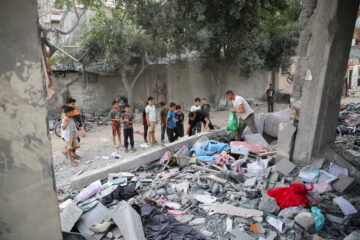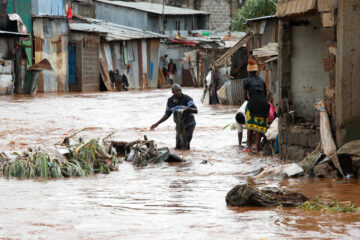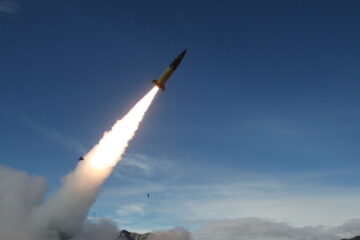Indonesia authorities say 174 dead after soccer melee, stampede
 Fans invade the soccer field after a match between Arema FC and Persebaya Surabaya at Kanjuruhan Stadium, Malang, Indonesia Oct 2, 2022 in this screen grab taken from a REUTERS video. REUTERS TV via REUTERS
Fans invade the soccer field after a match between Arema FC and Persebaya Surabaya at Kanjuruhan Stadium, Malang, Indonesia Oct 2, 2022 in this screen grab taken from a REUTERS video. REUTERS TV via REUTERSBrazilians are voting on Sunday in the first round of their country’s most polarized election in decades, with leftist Luiz Inacio Lula da Silva favored to beat right-wing incumbent Jair Bolsonaro.
Most polls have shown Lula with a solid lead for months, but Bolsonaro signaled he may refuse to accept defeat, stoking fears of institutional crisis or post-election violence.
A message projected on Rio de Janeiro’s Christ the Redeemer statue ahead of the vote read: “Peace in the Elections.”
Most opinion surveys favor Lula, who was president from 2003 to 2010, by 10-15 percentage points. If he wins more than 50% of valid votes, which several pollsters show within reach, that would clinch an outright victory, foregoing a second-round vote.
A winner could be announced within hours after polling stations close at 5 p.m. Brasilia time (2000 GMT).
If no candidate wins more than half of the votes, excluding blank and spoiled ballots, the top two finishers go to an Oct. 30 run-off, prolonging the tense campaign season.
Bolsonaro has threatened to contest the result of the vote, after making baseless allegations of fraud, accusing electoral authorities of plotting against him and suggesting the military should conduct a parallel tally, which they declined to do.
A decisive victory by Lula on Sunday could reduce the odds of a tumultuous transition. Critics of Bolsonaro say another month of his attacks on the democratic process could spur social unrest like the 2021 assault on the U.S. Capitol by supporters of former President Donald Trump.
Bolsonaro says he will respect the election result if voting is “clean and transparent,” without defining any criteria.
Brazilians are also voting on Sunday for all 513 members of the lower chamber of Congress, a third of the 81 members of the Senate and state governors and legislatures.
Though Lula leads the presidential race, the conservative coalition backing Bolsonaro is expected to hold a majority in both chambers of Congress. That could present challenges for the leftist to govern a country with rising hunger, high unemployment and an uneven recovery from the COVID-19 pandemic.
Lula and Bolsonaro have both promised more generous welfare spending next year, adding to pressure on the federal budget and leading both to look at alternatives to current spending rules.
The newly established autonomy of Brazil’s central bank and Lula’s choice of a centrist former rival as running mate have reassured some investors that he would not trigger a disruptive break in economic policy.
Lula has vowed to make a sharp departure from Bolsonaro’s environmental policies after deforestation in the Amazon rainforest hit a 15-year high. Lula has pledged to combat logging, step up protection of the biome and local tribes, and make Brazil a protagonist in climate diplomacy.
As in past elections, Brazil’s military has been mobilized to heighten security at some 477,000 polling stations, using electronic voting machines that allow for swift tabulation of results by the national electoral authority (TSE).
Following Bolsonaro’s criticisms of Brazil’s voting systems, the TSE invited a record number of foreign election observers, including first-time missions from U.S. observers at the Carter Center and the International Foundation for Electoral Systems (IFES).
FIFA has requested a report on the incident from PSSI, which has sent a team to Malang to investigate, PSSI secretary general Yunus Nusi told reporters.
Indonesia’s human rights commission also plans to investigate security at the grounds, including the use of tear gas, its commissioner told Reuters.
“Many of our friends lost their lives because of the officers who dehumanised us,” said Muhammad Rian Dwicahyono, 22, crying as he nursed a broken arm at the local Kanjuruhan hospital. “Many lives have been wasted.”
On Sunday mourners gathered outside the gates of the stadium to lay flowers for the victims.
Amnesty International Indonesia slammed the security measures, saying the “use of excessive force by the state … to contain or control such crowds cannot be justified at all”.
The country’s chief security minister, Mahfud MD, said in an Instagram post that the stadium had been filled beyond its capacity. Some 42,000 tickets had been issued for a stadium designed to hold 38,000 people, he said.
WORST IN HALF CENTURY
Financial aid would be given to the injured and the families of victims, East Java Governor Khofifah Indar Parawansa told reporters.
There have been outbreaks of trouble at matches in Indonesia before, with strong rivalries between clubs sometimes leading to violence among supporters.
Indonesia’s football scene has been blighted by hooliganism, heavy-handed policing and mismanagement, largely preventing the country of 275 million people who pack stadiums from harnessing its potential in the sport.
Zainudin Amali, Indonesia’s sports minister, told KompasTV the ministry would re-evaluate safety at football matches, including considering not allowing spectators in stadiums.
The Malang stadium disaster appeared to be the deadliest since 1964, when 328 people were reported dead in a riot and crush when Peru hosted Argentine at the Estadio Nacional.
In an infamous 1989 British disaster, 96 Liverpool supporters were crushed to death when an overcrowded and fenced-in enclosure collapsed at the Hillsborough Stadium in Sheffield.
Indonesia is scheduled to host the FIFA under-20 World Cup in May and June next year. They are also one of three countries bidding to stage next year’s Asian Cup, the continent’s equivalent of the Euros, after China pulled out as hosts.
The head of the Asian Football Confederation, Shaikh Salman bin Ebrahim Al Khalifa said in a statement he was “deeply shocked and saddened to hear such tragic news coming out of football-loving Indonesia”, expressing condolences for the victims, their families and friends.
SOURCE: REUTERS










